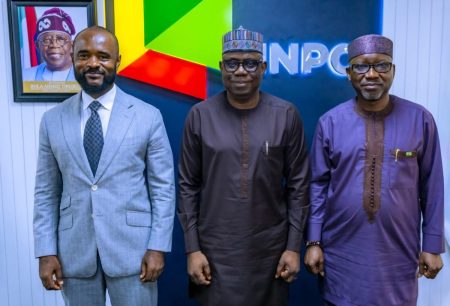 09 July 2017, Sweetcrude, Port Harcourt — A lot of things are undeniably true about Nigeria. It is not in a debate that we may never have come together to form a union if the British had not intervened in our lives. We have, in more than fifty years existed as a state alongside other states fused into existence by meddling colonialists. Within this period our people have experienced more adversity than peace, oppression than upliftment, the destruction of our old ways of life and values rather than the development of necessary infrastructure and a modern society. From independence till date political power has been seized upon by select groups of individuals who have closed their ears, hearts, and minds to the true aspirations of Nigerians. They have colluded, conspired against and cheated Nigerians, producing thereby the most cynical nation of individuals in the world. Nigerians have many interpretations of the concepts of truth, justice, and electoral success, none of them coming close to the pristine forms of those concepts.
09 July 2017, Sweetcrude, Port Harcourt — A lot of things are undeniably true about Nigeria. It is not in a debate that we may never have come together to form a union if the British had not intervened in our lives. We have, in more than fifty years existed as a state alongside other states fused into existence by meddling colonialists. Within this period our people have experienced more adversity than peace, oppression than upliftment, the destruction of our old ways of life and values rather than the development of necessary infrastructure and a modern society. From independence till date political power has been seized upon by select groups of individuals who have closed their ears, hearts, and minds to the true aspirations of Nigerians. They have colluded, conspired against and cheated Nigerians, producing thereby the most cynical nation of individuals in the world. Nigerians have many interpretations of the concepts of truth, justice, and electoral success, none of them coming close to the pristine forms of those concepts.
And yet Nigerians in the homeland and the Diaspora are setting paces in science, information technology, the arts, the academia and alas, sorcery! Nigeria is the country of the great Chinua Achebe, of Wole Soyinka, Abubakar Dangiwa Umar, Philip Emeagwali and the Imafidon family, adjudged the smartest in Britain. But Nigeria totters in arrested adolescence, an elephant in the shadows of a progressive squirrel! Nigeria does business, competing with private concerns worldwide, so that while Amoco produces a hat with two personnel and five dollars in two days, Nigeria produces a sombrero with twenty managers and forty field workers (if you foolishly discount the motley of supervisors), for fifty dollars in five months. And we hope to carve out a nice market share! The Nigerian government is a bulldog in the manager, seizing the rights of Jigawa State over her solid minerals through a legislative mimic of the Petroleum Decree to pretend universal applicability of theft perpetuated in a few states. The sad story is that the Nigerian Government does not explore or exploit the abundant solid minerals of Jigawa State.
Many within and outside Nigeria have demonstrated to successive governments in Nigeria that it is implausible for a federal ministry of power to stipulate the standards, set the rules, prescribe the modalities, define the extent of distribution, market and ascertain the cost of the generation and supply of electric power, a compulsory component of most businesses; states have argued forever that they ought to control the use of their airwaves by radio, television and telecommunications companies; states desire full control of their ports, air, and sea; road safety in Plateau State, traffic control in Adamawa State, speeding fines in Osun and DUI violations in Cross River are under the jurisdictional purview of a distant, undermanned and uncaring federal government. The Federal Government controls all the inland seaways, owns all the silt in the rivers and sets the rules for the use of the waterways. How can the states enjoy growth in such circumstances? What level of independence should states maintain in a federation of diverse ethnic nationalities and various religious confessions? How much longer shall the people of Nigeria protest this unwholesome political culture that promotes suspicion, hatred and perpetual bickering, apart from the gradual impoverishment of all, including the almighty federal government?
Nigeria, a poor state with a dubious tax base, depending on oil and gas operates a bicameral legislature, the Senate and the House of Representatives. From 1979 when Nigeria adopted the two-tier legislative system, the people of Nigeria have enjoyed as much benefit as a human expects to enjoy from a visiting leech. Everyday Nigerians are screaming for the restructuring of the federation to reflect the aspirations by the peoples of Nigeria for acceptable levels of independence. The protests and agitations are getting to a crescendo, mutating as they go into different forms and shapes. In the Eastern Belt, songs of nationalism and secession are sung freely in farms, on the sorting heaps of refuse as in opulent palaces. From the North, the West and the South we here ominous echoes of sabre rattling notices to quit and calls for separation. The political rhetoric flowing from the corners of the country is dangerous and volatile but they appear to be resonating with the bulk of the people of Nigeria who have endured decades of incompetent governance. It is time to steer the ship of state in the direction the people desire.



